Are you interested in:
- Great earning potential
- Learning the language of numbers in business
- Communicating financial information
- Helping organizations make better financial decisions
- Problem solving
- Investigating fraud and other types of financial crime
- Opportunities to travel the world
Accounting is the language used by business to communicate financial information to internal and external users. Majors are hard-working, smart, and number-savvy. They develop excellent communication skills and the ability to work effectively on a team. The stereotype of an accountant, working on a tax return using an adding machine, bears no resemblance to reality. Accounting today is much more sophisticated, globally focused, and connected to information systems and technology. The accounting curriculum starts off with the fundamentals where you learn problem-solving techniques, how to read financial reports, and the basics of accounting procedures. Later, students take specialty classes that align with their chosen career path.
Types of jobs:
- Public accounting is externally focused and typically includes preparation to sit for the Certified Public Accountant (CPA) exam. CPAs are exposed to a large number of companies and projects across a wide variety of industries. (The accounting profession in most states requires a student to have completed 150 credit hours in order to be eligible to sit for the CPA exam.)
- Private accounting is internally focused on one company, nonprofit organization, or government agency. Students pursuing this path might become a Certified Management Accountant (CMA), a Certified Internal Auditor (CIA), or a Certified Fraud Examiner (CFE).
Attend graduate school for:
- Master of Accountancy provides the additional credit hours needed and offers opportunities to further specialize in accounting
- Master in Business Administration
- Law school
- Any graduate degree will count toward the 150 hour CPA requirement
Options for the major:
- Given the number of hours required to complete the B.S. in accounting degree, students must plan carefully if they intend to add a second major or minor. Some options worth considering include:
- Adding a minor in another business field, such as finance. Students who combine accounting and finance have endless career opportunities. This combination is especially helpful for those interested in corporate banking, investments, or financial services
- Speaking a second language (such as Spanish or Mandarin) at even a modest level of proficiency makes a student extremely attractive in public accounting careers.
- Most accounting majors complete an internship and gain hands on experience. Accounting interns are well-paid and in high demand, especially in the spring semester around tax season.
- Other opportunities for experiential learning include:
- Serving in a leadership role for a student organization.
- Serving as a treasurer, fundraiser, or event planner for a student organization with responsibility for tracking revenues and expenses and being accountable for the organization’s finances.
Professional associations:
- The Meredith Accounting and Finance Association provides professional development and networking opportunities for Meredith students majoring in accounting or finance
- Join the American Institute of CPAs as a “Student Affiliate” member
Career outlook:
Additional information:
Find an accounting job that matches your personality by visiting the AICPA website for students.
Contact Information
1st Floor, Park Center
(919) 760-8088
advising@meredith.edu
What can I do with a major in...?
- Accounting
- Art Education
- Biology
- Birth to Kindergarten Licensure
- Business Administration
- Human Resource Management
- Marketing
- Chemistry
- Child Development
- Communication
- Computer Science
- Criminology
- Dance
- Economics
- Elementary Education Licensure
- English
- Classroom to Career – Environmental Sustainability
- Exercise & Sports Science
- Family & Consumer Sciences
- Family & Consumer Sciences Education Licensure
- Fashion Merchandising & Design
- Food & Nutrition
- Graphic Design
- History
- Interior Design
- International Studies
- Mathematics
- Middle or High School Education Licensure
- Music
- Music Education
- Political Science
- Psychology
- Public Health
- Religious & Ethical Studies
- Social Work
- Sociology
- Spanish
- Studio Art
- Teacher Education
- Theatre


